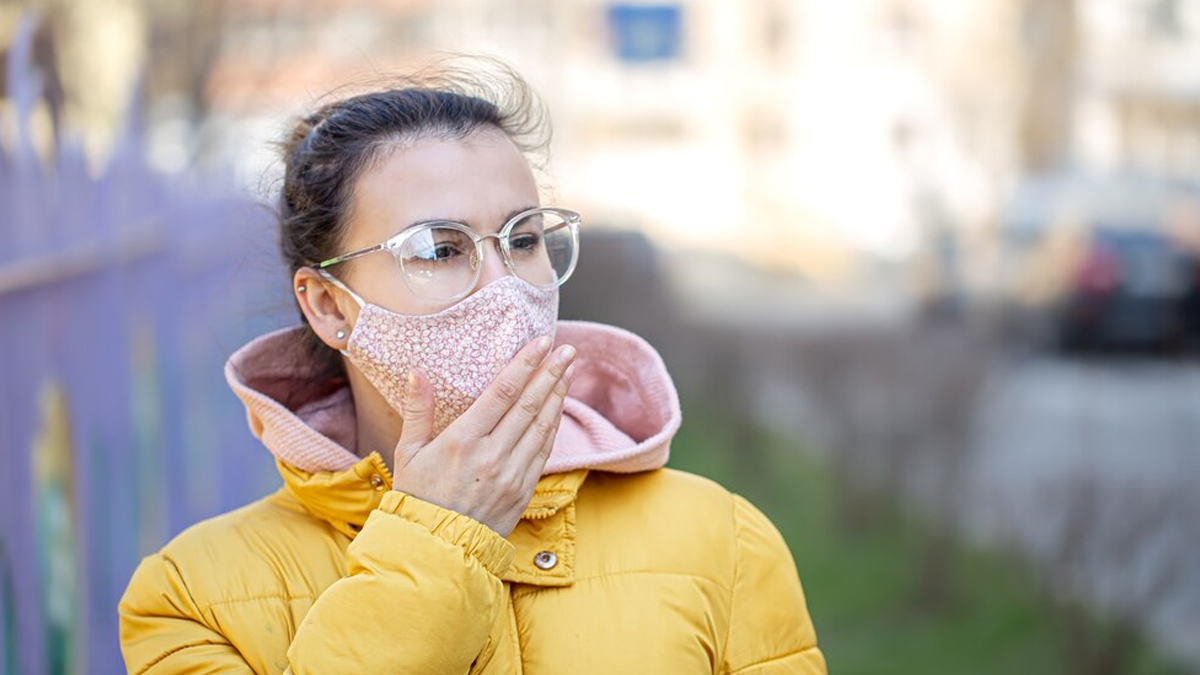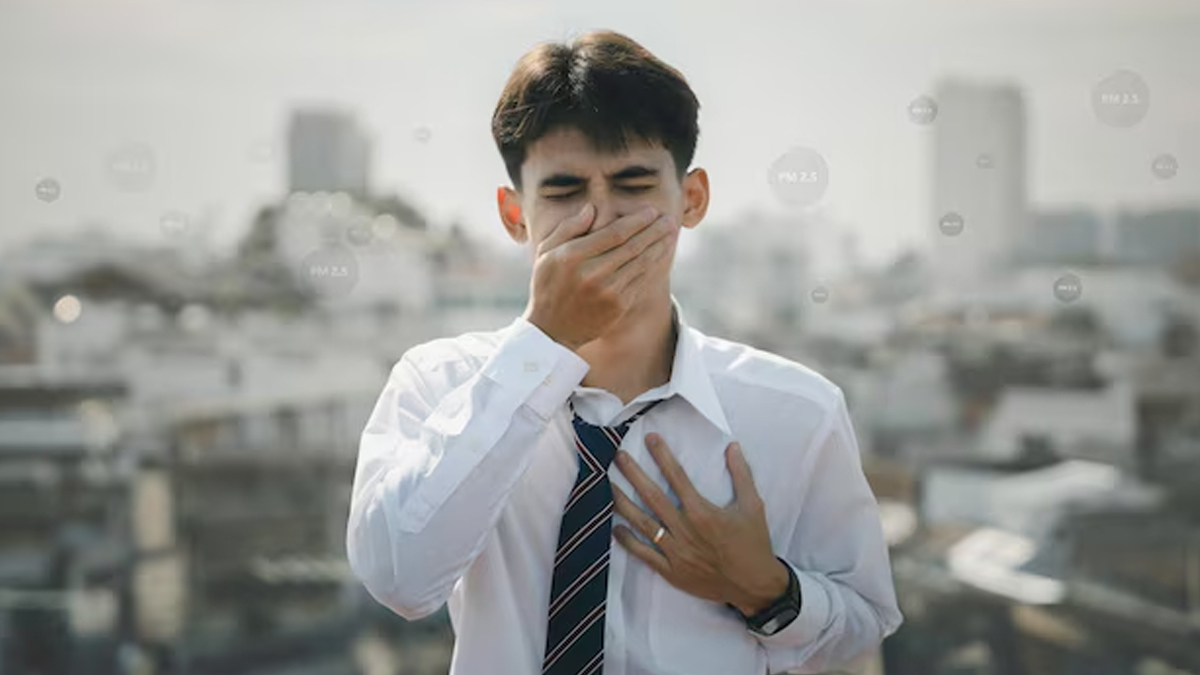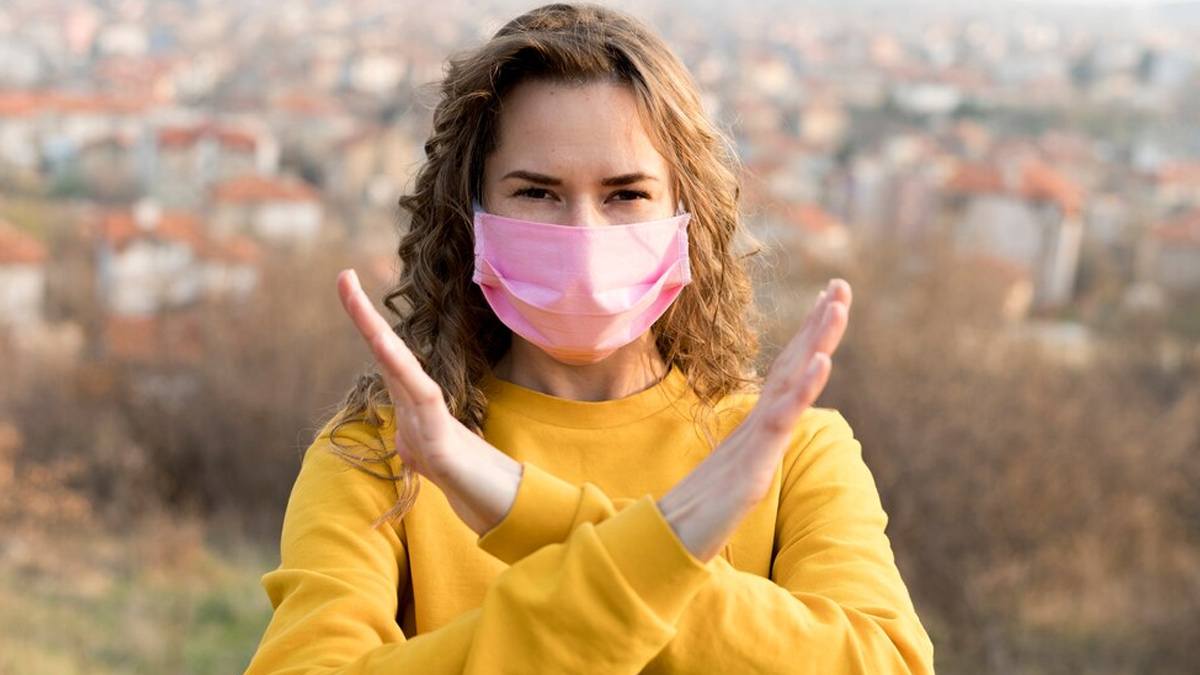
As Delhi wakes up to 'poor' air quality, many people, especially those with pre-existing health conditions, remain concerned. With the Air Quality Index (AQI) recorded at 272 in the national capital and with Diwali just around the corner, experts warn against possible respiratory problems and encourage necessary measures to protect against the same.
Table of Content:-
In an interaction with the OnlyMyHealth team, Dr Padma Sundaram, Consultant - Pulmonologist and Sleep Specialist, Fortis Hospital, Cunningham Road, Bengaluru, shares useful insights into what to expect during increasing air pollution and necessary steps people should take now and in the coming days.
Also Read: High Air Pollution Alert: Toxic Smog Linked To Stroke And Lasting Brain Damage
Common Respiratory Illnesses Triggered By Poor Air Quality

According to the World Health Organization (WHO), the combined impact of outdoor (ambient) and household air pollution is linked to approximately 60.7 lakh premature deaths annually. In 2019 alone, outdoor air pollution contributed to 40.2 lakh of these deaths.
It is also important to note that air pollution is the second leading cause of lung cancer, responsible for up to 29% of all lung cancer deaths, according to the Union for International Cancer Control (UICC).
Dr Sundaram adds that poor air quality in urban areas can trigger respiratory illnesses such as Chronic Obstructive Pulmonary Disease (COPD), pneumonia, bronchitis, and asthma, sharing that the key pollutants include particulate matter (PM), ozone, and nitrogen dioxide. PM, also known as particle pollution, is a mixture of solid particles and liquid droplets that are suspended in the air.
What People With Pre-Existing Lung Diseases Should Know About Air Pollution

As per Dr Sundaram, prolonged exposure to air pollution exacerbates symptoms, increases medication reliance, and reduces lung function in individuals with pre-existing health conditions like asthma or bronchitis.
Asthma is a chronic lung disease that leads to inflammation and tightening of the muscles around the airways, making it difficult to breathe. On the other hand, bronchitis occurs when the bronchial tubes, the airways leading to the lungs, become inflamed.
Increasing air pollution and deteriorating air quality can trigger acute attacks, hospitalisations, and increased mortality risk, necessitating proactive management.
A 2022 review published in the Korean Academy of Tuberculosis and Respiratory Diseases suggests that a 10 μg/m³ increase in PM2.5 can lead to a 0.68% increase in all-cause mortality, emphasising the need for stricter air quality regulations and further research to better understand the long-term consequences of air pollution exposure.
Also Read: Pollution Detox: Here's How You Can Cleanse Your Body and Boost Immunity
Immediate Steps To Prevent Air Pollution
Air pollution occurs due to various harmful substances, also called pollutants, that contaminate the air. Some of the common sources include vehicle emissions, industrial activities, and burning fossil fuels for energy. Household pollutants from cooking stoves and heating, especially in low-ventilation areas, also contribute significantly. Agriculture practices and waste burning further increase pollution levels.
To protect yourself against these pollutants, you can wear N95 masks, stay indoors during peak pollution hours, avoid strenuous outdoor activities, use air purifiers, monitor air quality indexes, and maintain good hygiene practices, such as frequent handwashing and avoiding close contact, advises Dr Sundaram.
Indoor air pollutants like particulate matter, volatile organic compounds, and gases from cooking, heating, and cleaning can also contribute significantly to respiratory risks. To reduce risks, use HEPA filters, improve ventilation, eliminate smoking, and adopt eco-friendly cleaning practices, the doctor adds.
How To Manage Respiratory Symptoms Due To Air Pollution

During high pollution levels, many people are likely to experience respiratory symptoms, such as nasal itching and throat irritation.
These can be managed by staying hydrated, using saline nasal sprays, and humidifiers.
Additionally, avoid irritants like dust, pollen, and strong odours while also taking Over-the-Counter (OTC) medications like antihistamines and decongestants after consultation with a medical professional.
Also watch this video
How we keep this article up to date:
We work with experts and keep a close eye on the latest in health and wellness. Whenever there is a new research or helpful information, we update our articles with accurate and useful advice.
Current Version